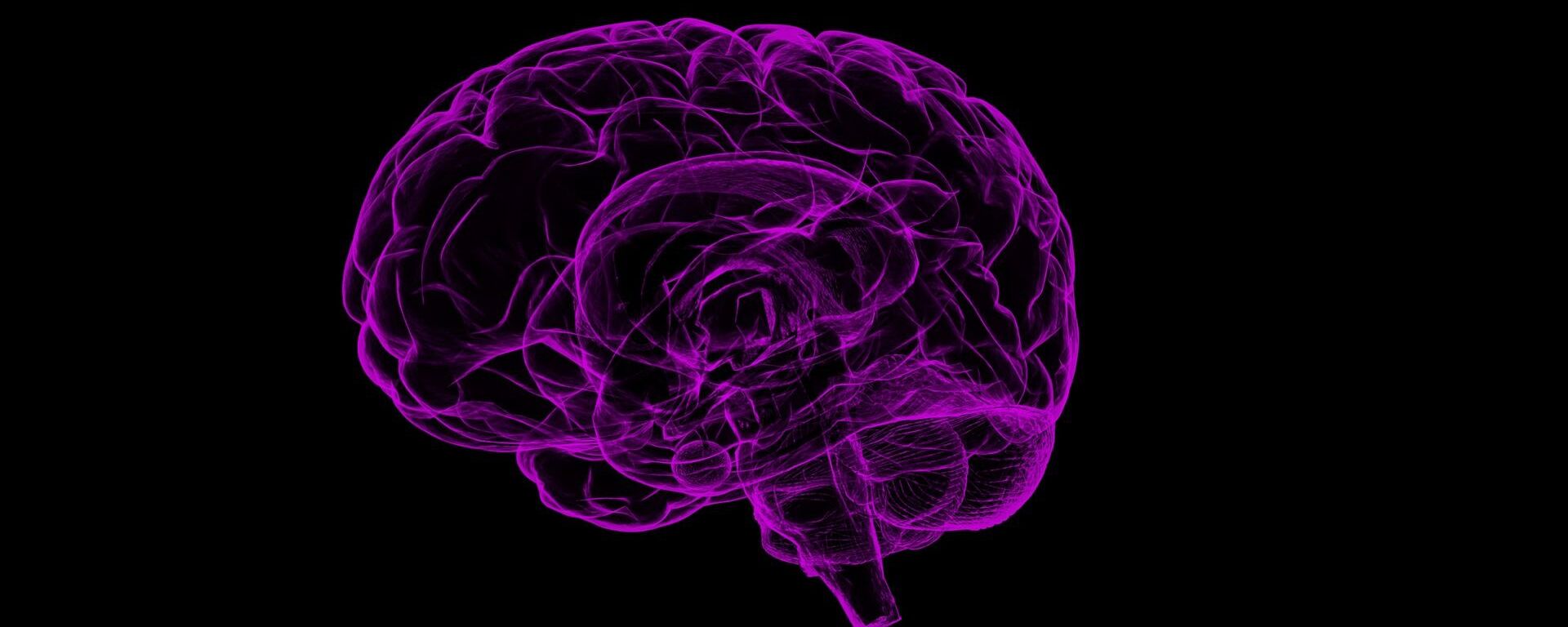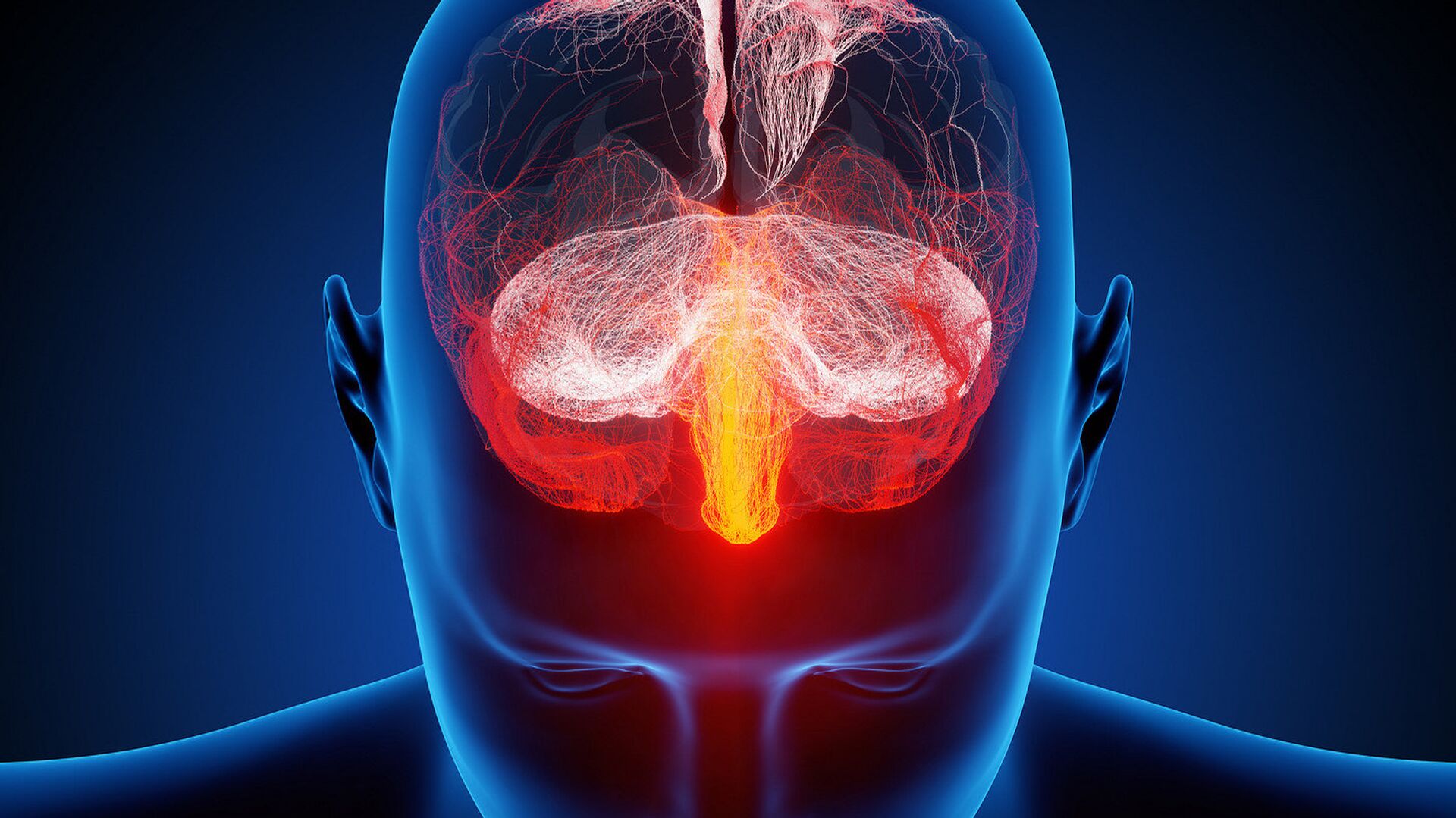https://sputnikglobe.com/20231108/1950s-anxiety-pill-may-help-doctors-treat-brain-cancers-1114829285.html
1950s Anxiety Pill May Help Doctors Treat Brain Cancers
1950s Anxiety Pill May Help Doctors Treat Brain Cancers
Sputnik International
A psychiatric medication that was used for treating anxiety in the 1950s, may help with treating an aggressive and deadly form of brain cancer.
2023-11-08T23:58+0000
2023-11-08T23:58+0000
2023-11-08T23:57+0000
beyond politics
health
cancer
brain cancer
cancer treatment
study
medicine
https://cdn1.img.sputnikglobe.com/img/102201/89/1022018973_0:392:1455:1210_1920x0_80_0_0_db3634f7ee28e18d7a53712685c583f2.jpg
A psychiatric medication that was used for treating anxiety in the 1950s may help with treating an aggressive and deadly form of brain cancer, new findings have suggested.Researchers from the South Australia Health and Medical Research Institute (SAHMRI) and Flinders University in Adelaide, Australia, believe the drug trifluoperazine, in combination with standard glioblastoma (GBM) care, could potentially keep patients alive for longer.Brain cancers, and especially the aggressive and fast-growing GBM, are particularly resistant to cancer treatments. Brain cancers also kill more children and adults under 40 than any other form of cancer.Scientists believe that because these cancer cells are exposed to cerebrospinal fluid—a liquid that protects the brain—they change and become more resistant to standard cancer treatments like radiation and temozolomide, a drug used to treat brain cancers.“This study helps us understand the limitations of the current chemotherapies and provides new hope for repurposing a class of drugs that could be added to the standard of care. We are working hard now to try this on patients in a clinical trial.”But researchers found that the anti-anxiety drug trifluoperazine - presently used to treat mental health conditions such as schizophrenia - could make GBM cells sensitive to cancer treatments, despite them having been exposed to cerebrospinal fluid. The drug would not harm healthy brain cells, either, researchers found.The study, which focused on tumor cells from 25 GBM patients, was published in the journal Science Advances.
https://sputnikglobe.com/20210819/israeli-scientists-say-first-brain-tumor-created-on-3d-bioprinter-will-help-fight-brain-cancer-1083656230.html
Sputnik International
feedback@sputniknews.com
+74956456601
MIA „Rossiya Segodnya“
2023
News
en_EN
Sputnik International
feedback@sputniknews.com
+74956456601
MIA „Rossiya Segodnya“
Sputnik International
feedback@sputniknews.com
+74956456601
MIA „Rossiya Segodnya“
medicine, cancer, brain cancer, brain cancer treatments, study, health, science, glioblastoma, trifluoperazine
medicine, cancer, brain cancer, brain cancer treatments, study, health, science, glioblastoma, trifluoperazine
1950s Anxiety Pill May Help Doctors Treat Brain Cancers
The most common and aggressive form of brain cancer carries with it a 6.9%, five-year survival rate, with the most average survival time being just 14.6 months.
A psychiatric medication that was used for treating anxiety in the 1950s may help with treating an aggressive and deadly form of brain cancer, new findings have suggested.
Researchers from the South Australia Health and Medical Research Institute (SAHMRI) and Flinders University in Adelaide, Australia, believe the drug trifluoperazine, in combination with standard glioblastoma (GBM) care, could potentially keep patients alive for longer.
Brain cancers, and especially the aggressive and fast-growing GBM, are particularly resistant to cancer treatments. Brain cancers also kill more children and adults under 40 than any other form of cancer.
Scientists believe that because these cancer cells are exposed to cerebrospinal fluid—a liquid that protects the brain—they change and become more resistant to standard cancer treatments like radiation and temozolomide, a drug used to treat brain cancers.
“Glioblastoma kills so many people who are otherwise fit, healthy and young, within months. This is a horrible disease, and the treatments available are just not effective enough despite serious side effects,” says lead study author Cedric Bardy, assistant professor at SAHMRI and Flinders University, in a
media release.

19 August 2021, 03:52 GMT
“This study helps us understand the limitations of the current chemotherapies and provides new hope for repurposing a class of drugs that could be added to the standard of care. We are working hard now to try this on patients in a clinical trial.”
But researchers found that the anti-anxiety drug trifluoperazine - presently used to treat mental health conditions such as schizophrenia - could make GBM cells sensitive to cancer treatments, despite them having been exposed to cerebrospinal fluid. The drug would not harm healthy brain cells, either, researchers found.
The
study, which focused on tumor cells from 25 GBM patients, was published in the journal Science Advances.



